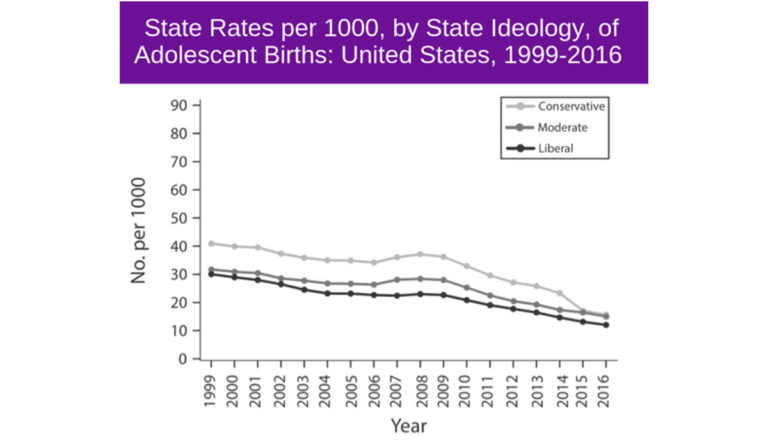Education to Reduce Teen Baby Bumps
Understanding the factors that influence teen reproductive health is essential as evidence grows in the "safe sex" vs. "abstinence only" education debate.

Read Time: 2 minutes
Published:
The birth rate among adolescents in the United States has declined over the past twenty-five years. This decline is partially due to more teens using birth control and lower rates of sexual activity. Yet, the teen birth rate in the US continues to be higher than in other high-income countries.
Whether school-based sexual education should teach “safe sex” or “abstinence only” is a long-standing debate in the US. Proponents of comprehensive, evidence-informed sexual health education emphasize the importance of teaching youth about contraceptives and disease. Supporters of abstinence until marriage education advocate for restricting such information as a means to deter sexual initiation in adolescence. However, a body of evidence indicates that abstinence-only programs do not yield behavioral changes.
Ashley Fox and colleagues recently examined the relationship between teen birth rates and funding for abstinence-only and comprehensive sexuality education. The figure above shows the trends in adolescent birth rates in conservative, moderate, and liberal states from 1999 to 2016. Conservative states, which have high levels of funding for abstinence education, have continuously had higher birth rates than moderate and liberal states, which are more likely to fund comprehensive sexuality education. All states have reduced adolescent birth rates since 1999, though all experienced a small unexplained uptick in 2008 and 2009.
Teen birth rates vary by state. Understanding the complex interaction of factors that influence adolescent reproductive health remains critical as the US invests millions of dollars annually in sexuality education and states make choices about what to teach.
Databyte via Fox, Ashley M., et al. Funding for Abstinence-Only Education and Adolescent Pregnancy Prevention: Does State Ideology Affect Outcomes? American Public Health Association (APHA).



